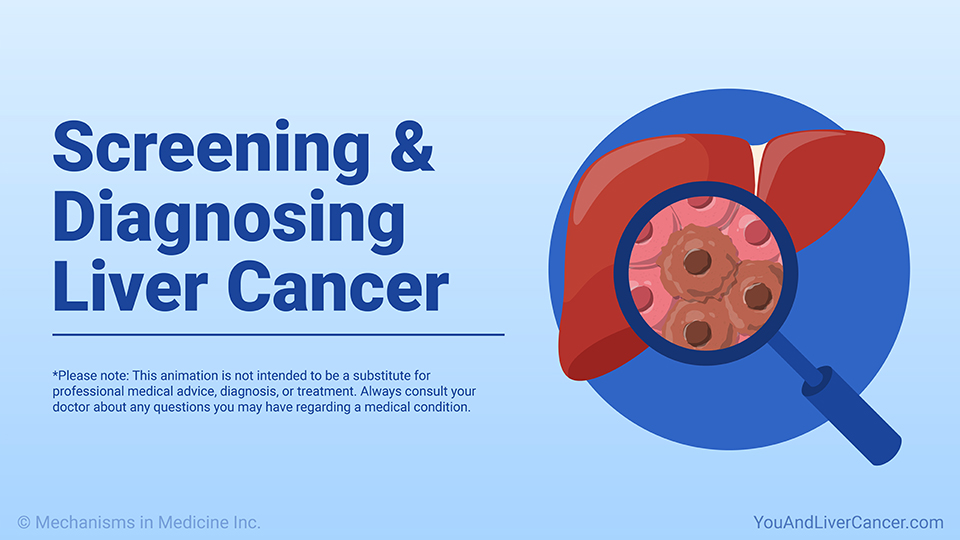Understanding Clinical Trials in Liver Cancer
*Please note: This slide show is not intended to be a substitute for professional medical advice, diagnosis, or treatment. Always consult your doctor about any questions you may have regarding a medical condition.
What is a clinical trial?
A clinical trial is a research study in which people volunteer to test a new drug or treatment before it is available to the public or approved by the regulatory authorities.
What is a clinical trial?
Clinical trials help researchers find new ways to diagnose, treat, and prevent diseases, including liver cancer.
The importance of clinical trials for liver cancer
New tests and treatments are needed for liver cancer, which affects a substantial number of people each year. Liver cancer incidence rates have more than tripled and death rates have more than doubled since 1980.
The most common type of liver cancer, hepatocellular carcinoma, or HCC, is the fastest-rising cause of death in the United States.1
How are clinical trials done?
Clinical trials are done in phases.2 Each phase has a different goal.
In Phase 1, a small group of volunteers tests a treatment to learn about its safety and side effects (also called toxicity).
In Phase 2, a larger group tests the effectiveness (or how well it treats the disease).
In Phase 3, many volunteers are treated to confirm effectiveness and compare the treatment with currently available treatments that may be considered standard of care.
How are clinical trials done?
A treatment is approved by the regulatory authorities once it is proven safe for patients and effective as a disease treatment. Then doctors can prescribe it with wider access for the public.
Researchers continue gathering information on the treatment after it is publicly available.2
Are clinical trials monitored?
Before starting, clinical trials must be approved by a group called an Institutional Review Board (IRB), which may include patients like you and/or patient advocates.
During the trial, study monitors check that the research is done correctly and that your safety and privacy are protected. If the study monitors find problems, they can stop the trial.3
What research is being done on liver cancer?
Clinical trials for liver cancer are investigating everything from screening tests,
targeted therapy, to new immunotherapy combinations to treat cancer cells by increasing one's immune responses.4
Who can join a liver cancer clinical trial?
You may join a liver cancer clinical trial to try a new treatment or help others. Researchers check to make sure each person who joins a trial meets certain standards called "eligibility criteria", to make sure they qualify to take part.
Why are clinical trial volunteers needed?
Volunteers are needed because new treatments must be evaluated in humans before being prescribed. This can provide early access to new therapies before they are widely available. But in the United States, only 7 in every 100 people with cancer join a clinical trial.5
Many people may not know that trials are available or how to find one.
Will I benefit from being in a clinical trial?
You may benefit personally from being in a clinical trial, and you will help others with liver cancer in the future. The trial results will help doctors learn more about liver cancer.
Are there risks to being in a clinical trial?
Like every treatment, clinical trials have some risks. It is important to learn about these risks before volunteering for a trial.
The risks are often like the risks of standard cancer treatment, such as side effects or the treatment not working as well as you hoped.2
How do I decide to join a trial or not?
You can learn about trials before joining. Once you find a trial that interests you, contact your doctor or other healthcare provider to learn if you qualify. If so, you will go through a process called informed consent.
This involves meeting with a study coordinator to review the research plan, risks, and benefits. If you want to join, you sign a statement agreeing to be in the trial. The doctor in charge of the study, called the principal investigator (PI), will work closely with you and your doctor.
Can I change my mind about being in a clinical trial?
You can leave a clinical trial at any time if you change your mind.
You will still receive the usual treatments and care for liver cancer if you leave the trial.
Will I get a placebo, or "sugar pill", in a liver cancer trial?
A placebo, or "sugar pill", looks like the treatment or procedure doctors are studying but contains no active ingredients.
The trial may compare the new treatment to the standard treatment. In cases with a proven therapy, placebo would not be used. However, placebo may be used in cases where there is no proven treatment.6
How do I find liver cancer clinical trials?
If you are interested in joining a trial, speak to your medical team. They can help you find the right trial for you.
You can also search for clinical trials by visiting the https://ClinicalTrials.gov website or by visiting Blue Faery's clinical trials finder at
https://bluefaery.org/clinical-trials.
References
- American Cancer Society. Key statistics about liver cancer. Last revised: February 11, 2025.
https://www.cancer.org/cancer/types/liver-cancer/about/what-is-key-statistics.html
- U.S. National Institutes of Health. The Basics. NIH clinical research trials and you. Last revised: October 3, 2022.
https://www.nih.gov/health-information/nih-clinical-research-trials-you/basics
- Memorial Sloan Kettering Cancer Center. Frequently asked questions about clinical trials.
https://www.mskcc.org/cancer-care/clinical-trials/frequently-asked-questions
- American Cancer Society. What’s new in liver cancer research? Last revised: February 11, 2025.
https://www.cancer.org/cancer/types/liver-cancer/about/new-research.html
- Unger JM, Shulman LN, Facktor MA, Nelson H, Fleury ME. National estimates of the participation of patients with cancer in clinical research studies based on Commission on Cancer Accreditation Data. J Clin Oncol. 2024 Jun 20;42(18):2139-2148.
- National Cancer Institute. How do clinical trials work? Use of placebos in clinical trials. Last revised: November 8, 2024.
https://www.cancer.gov/research/participate/clinical-trials/how-trials-work#use-of-placebos-in-clinical-trials
This slide show explains
liver cancer clinical trials, how they are conducted, and why they are important for patients with liver cancer. Clinical trials help researchers find new ways to diagnose, treat, and prevent diseases, including
liver cancer. New tests and treatments are needed for liver cancer, which affects a substantial number of people each year. The most common type of liver cancer, hepatocellular carcinoma (HCC), is the fastest-rising cause of death in the United States. Click through to learn about clinical trial phases, monitoring and safety, eligibility criteria, informed consent, the potential benefits and risks of participation, and how to find liver cancer clinical trials. Be sure to discuss all your treatment options, including clinical trials, with your healthcare team.
-
Share with family and friends:
Click here to take our SURVEY
Your feedback is important to us! We will use your feedback to develop future areas of content about liver cancer which will help other patients, caregivers, and families.

































